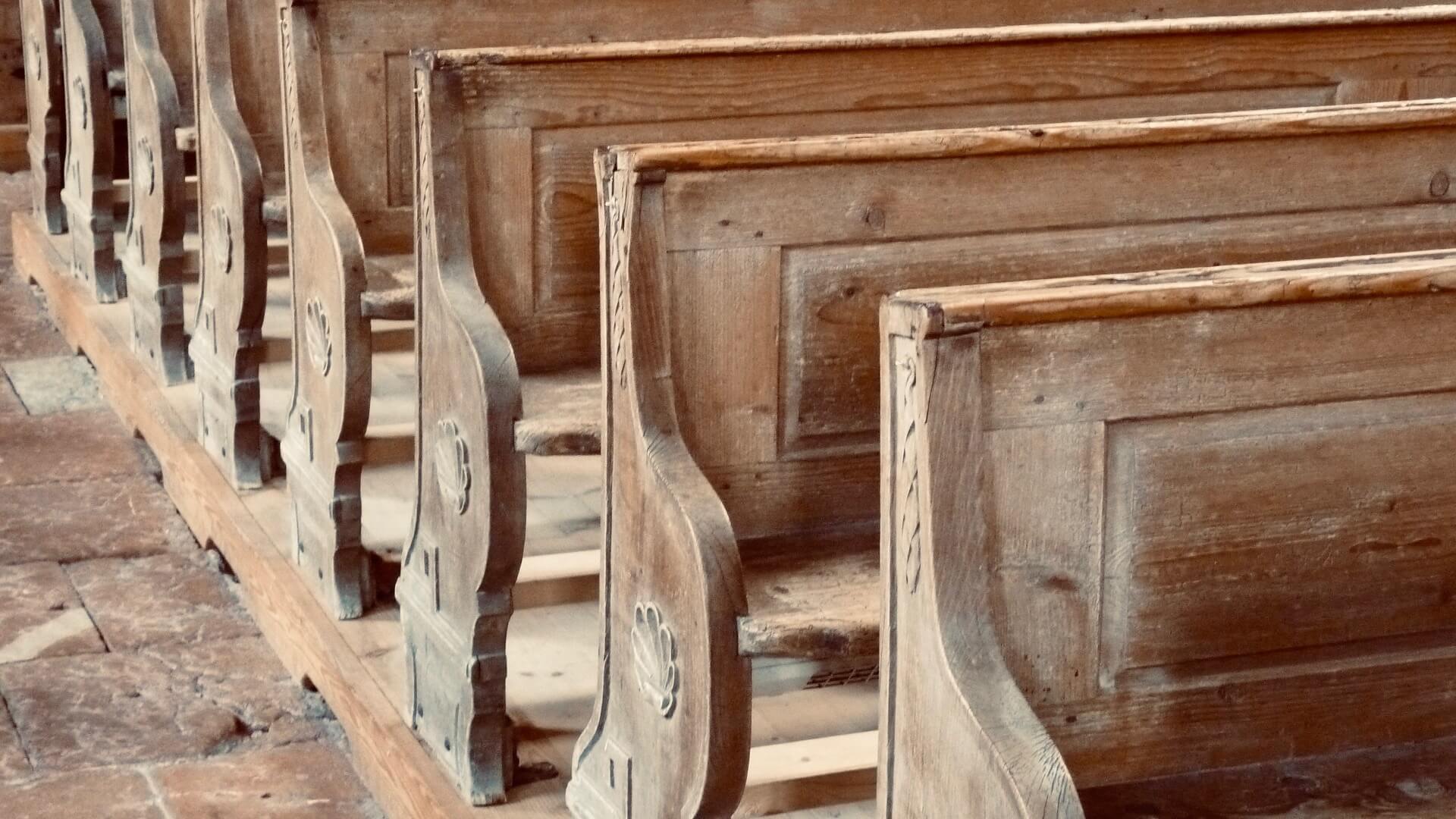Hypocritical Religious Leaders Are the worst
The word hypocrite comes from a Greek word that was used for actors wearing masks in a play. So it is somebody who is just putting on a show. What you see isn’t who the person really is. Simply put, hypocrisy is when actions contradict beliefs.
When you first read the word hypocrite, what comes to mind? Maybe a better question is who comes to mind?
I’ll never forget what it felt like to hear that somebody I thought was a good friend was talking negatively about me to everyone when I wasn’t around. That hurts. Well, as a pastor, that doesn’t shock me so much anymore. Plenty of people have said mean things about me, and you get thick skin after a while—even though it still hurts.
Whenever we see hypocrisy, we are revolted. It’s shocking, scandalous—even sad.
But if you asked me, there’s nothing worse than hypocrisy in religious leaders. And that is what we’re going to be focusing on today.
In fact, we have a phrase that is common in our society when someone is being a hypocrite. We say, “Practice what you preach!” And this phrase comes directly from the lips of Jesus, himself.
Hypocrisy of Pharisees
When you think of the biggest hypocrites in the Bible, the Pharisees come to mind. The Pharisees were a growing sect of Judaism that were devoted to strict interpretation of the Mosaic Law. Their name originates from an Aramaic word that means “to separate” or “divide.” They separated or divided from others because of their strict devotion to righteousness and piety, even developing many laws in addition to the Mosaic law to help preserve their purity. They were so committed to purity that they were willing to fight against or execute anyone who threatened their beliefs. They started from pure motives to pursue holiness, as many often do, but as we can see, the Pharisees overshot the mark and went too far.
Now, Jesus is full of grace and mercy, but he did not hold back his righteous anger toward the rampant abuse and hypocrisy of these religious authorities. So today, I want to dive into a passage of Scripture where Jesus said arguably some of his harshest words recorded—Matthew 23:1-36.
What we are about to read happened only a few days before Jesus was arrested and crucified. Crowds were gathering to hear Jesus teach, and the Pharisees were disgusted with Jesus. They were trying to discredit him everywhere he went. They were already plotting his death.
And this is what Jesus had to say about them.
1 Then Jesus said to the crowds and to his disciples, 2 “The scribes and the Pharisees sit on Moses’ seat, 3 so do and observe whatever they tell you, but not the works they do. For they preach, but do not practice. 4 They tie up heavy burdens, hard to bear, and lay them on people’s shoulders, but they themselves are not willing to move them with their finger.
Matthew 23:1-4 ESV
Jesus begins by honoring the authority of the Pharisees and scribes. They sit in Moses’ seat, meaning they are seated in his office, holding similar authority and power that Moses had. So the first thing Jesus says to do is, “Do what they tell you.” Listen to them and respect their authority.
But then Jesus immediately addresses the problem: Do what they say, not what they do!
This is Jesus’ first problem with the Pharisees: They don’t practice what they preach!
Their words are empty because they don’t back it up with their actions. So when they teach from the Scriptures, do what they say (following God’s commands) but don’t follow what they do, because they are hypocrites. Instead, just follow the Bible!
God’s Word won’t steer you wrong, but people will. I don’t care if it is me, another pastor, or anyone else at your church or any other church, run everything anyone says by Scripture first. Follow the Bible above all else. The only authority anyone has to speak on is what the Bible says, everything else is just opinions and commentary.
So, an example of the hypocrisy of the Pharisees that Jesus points out is that they tie up heavy burdens and place them on other people, when they won’t even move a finger to do any of it themselves.
Pharisees and legalistic, religious hypocrites constantly burden people with their rules and laws. They even make up rules to surround the rules so that you don’t get anywhere even close to breaking the rules. The Pharisees added over 600 rules to the law of the Old Testament. It was a massive burden.
This is legalism. Legalism is the opposite heresy of antinomianism (or lawlessness). It is all law and no grace. Antinomianism is all grace, no law. Both are wrong. You need both grace and law.
Legalism believes that you can earn your way into heaven. It’s the basis of all other religions. Do better, try harder, follow these rules, and you can achieve righteousness. That’s just not possible.
Often what happens in legalism is that you hold to the letter of the law, but you miss the spirit of the law. You become stricter than God, himself. And it usually results in pride and self-righteousness, thinking you are better than others because you follow the rules. Or on the opposite side, it results in immense guilt and shame because no matter how hard you try, you cannot measure up to all of the laws you hold.
This reminds me of what Jesus says in Matthew 11:28-30, “Come to me, all who labor and are heavy laden, and I will give you rest. 29 Take my yoke upon you, and learn from me, for I am gentle and lowly in heart, and you will find rest for your souls. 30 For my yoke is easy, and my burden is light.”
Jesus doesn’t burden us with more laws. He frees us from the chains of lawlessness and legalism.
But the Pharisees place heavy burdens on people that they don’t even follow themselves. They’re hypocrites. And if you think Jesus was done condemning the Pharisees, hold tight, we’re just getting warmed up.
Big Egos and Big Boxes
5 They do all their deeds to be seen by others. For they make their phylacteries broad and their fringes long, 6 and they love the place of honor at feasts and the best seats in the synagogues 7 and greetings in the marketplaces and being called rabbi by others. 8 But you are not to be called rabbi, for you have one teacher, and you are all brothers. 9 And call no man your father on earth, for you have one Father, who is in heaven. 10 Neither be called instructors, for you have one instructor, the Christ. 11 The greatest among you shall be your servant. 12 Whoever exalts himself will be humbled, and whoever humbles himself will be exalted.
Matthew 23:5-12
Do you see the problem here? The Pharisees loved the attention and praise they got for themselves.
You see that word, phylacteries? What does that mean? Phylacteries were boxes with scripture written on parchment inside them that Jews would tie to their foreheads and arm (Deut 11:18).
The fringes were strands of blue or white thread that Jews would hang from the corners of their garments as a reminder of God’s commandments (Deut 22:12).
These things started small, but over time as the egos of the Pharisees grew, so did their boxes. So the Pharisees would wear extra-large boxes and extra-long tassels to make sure everyone saw how religious and holy they were.
Just look at them. They must be important. They must be very spiritual. Just look at those tassels.
It sounds funny, but we do this today. Many pastors and religious leaders in other churches will wear special robes or big hats as symbols of their holiness and their position in the church.
And we do the same thing. We wear special Christian shirts, Christian jewelry, put bumper stickers on our cars, or carry extra-large Bibles. Look at how spiritual I am. My Bible is big!
And there’s nothing wrong with any of it unless we’re doing it for a show so that people will notice and think more highly of us. That’s the same motivation of the Pharisees.
The Pharisees loved the title of Rabbi, just as some religious leaders love to be called “Reverend” “Bishop” or “Father.”
I have to admit that sometimes I catch myself enjoying being called “pastor” because it makes me feel special. But I’m no better than anyone else.
What Jesus says in the last two verses (Mt 23:11-12) is key.
Do you want to be truly great? Serve.
Do you want an incredible leadership principle? Just meditate on this principle, do it every day, and see what happens. This is how Jesus led.
So if we were to summarize the Pharisees’ problem, it’s this: They’re hypocrites. They don’t practice what they preach.
7 Woes to the Hypocrites
Next, Jesus proclaims seven woes against the scribes and Pharisees.
He has more woes for them than an early 2000’s worship song, if you know what I mean.
“Woah woah ohhh oh…”
Okay, that was a bad joke. The woes aren’t like what we hear in songs on the radio.
Woes were dire warnings and pronouncements of coming judgment that prophets of God would declare.
And when Jesus, pronounces warnings of impending judgment upon you, that’s no laughing matter. These are serious condemnations. If you can imagine any of the prideful Pharisees being on the fence about plotting to kill Jesus, this would have pushed them over it. They were furious.
Just notice the names that Jesus calls the scribes and Pharisees: Verse 13. hypocrites, 15. hypocrites and children of hell, 16. blind guides, 17. blind fools, 19. blind men, 23. hypocrites, 24. blind guides, 25. hypocrites, 26. blind, 27. hypocrites and whitewashed tombs, 28. full of hypocrisy and lawlessness, 29. hypocrites, 33. serpents and brood of vipers
Woe 1
Jesus says, “you shut the kingdom of heaven in people’s faces. For you neither enter yourselves nor allow those who would enter to go in” (Mt 23:13).
They were hypocrites because they proclaimed that they knew the way to salvation but they rejected the kingdom of God by rejecting Jesus. And they led others astray along with them, shutting the door to heaven in their faces!
They thought they were working for God when they were his enemies, plotting to kill his Son, Jesus.
Woe 2
Jesus says, ”you travel across sea and land to make a single proselyte, and when he becomes a proselyte, you make him twice as much a child of hell as yourselves.” (Mt 23:15).
A proselyte is a convert. So they traveled great distances to make converts, but the converts followed the Pharisees and became even worse.
Hypocritical religious leaders either lead people astray by their teaching or by their fall when their hypocrisy is exposed and their followers are disillusioned.
Woe 3
Jesus condemns them in Matthew 23:16-22 for focusing on the wrong thing.
They focus their oaths on whatever is on the altar in the temple. And Jesus says, you blind fools. What is greater, the gift on the altar or the God who the temple is for?
They are missing the point. There is no power in the gift. God has all the power.
Woe 4
Jesus says, “you tithe mint and dill and cumin, and have neglected the weightier matters of the law: justice and mercy and faithfulness. These you ought to have done, without neglecting the others. 24 You blind guides, straining out a gnat and swallowing a camel!” (Mt 23:23-24).
The Pharisees majored on the minors and missed the majors. They would tithe a tenth of even the tiny harvest of mint leaves from their herb garden, but they forgot the bigger matters of the law, such as justice, mercy, and faithfulness.
In order to not eat anything unclean, they would run their drinks through a strainer so that they could catch even the smallest of unclean creatures (gnats). And Jesus is saying, “Sure, you strain out the gnats in this area, but over here, you are swallowing a camel!” the largest unclean animal around.
Jesus is saying, “I don’t care how much you tithe when you are unjust, merciless, and unfaithful!” It doesn’t matter how many sacrifices you make or how much money you give, God isn’t impressed if your heart is in the wrong place.
Woe 5
Jesus says, ”you clean the outside of the cup and the plate, but inside they are full of greed and self-indulgence. 26 You blind Pharisee! First clean the inside of the cup and the plate, that the outside also may be clean” (Mt 23:25-26).
How many of you would be happy if I invited you over to my house for dinner and I cleaned only the outside of my grandmother’s gold-plated china dishes that haven’t been washed since World War 2?
The outside looks beautiful, but the inside has things living in there since before the Truman administration. Is anyone feeling hungry?
The Pharisees focused on outward appearance, but the inside was filthy. And the next woe is similar.
Woe 6
Jesus says, “you are like whitewashed tombs, which outwardly appear beautiful, but within are full of dead people’s bones and all uncleanness. 28 So you also outwardly appear righteous to others, but within you are full of hypocrisy and lawlessness” (Mt 23:27-28).
That’s what we do to Jesus. Look how good I appear on the outside. I dress nice, put on my Sunday best, and look great, don’t I? Sure, our hearts are filled with anger, jealousy, bitterness, unforgiveness, lust, and greed, but don’t we look good in our new clothes!
Let’s stop the hypocrisy. It’s like the old saying about putting lipstick on a pig. No matter how hard you try to dress it up, it’s still just a pig. God is not impressed by our outward appearance.
1 Samuel 16:7 says, “The Lord sees not as man sees: man looks on the outward appearance, but the Lord looks on the heart.”
Your heart is what God cares about. Let Jesus change your heart, and the outside will follow.
Woe 7
In the last woe, Jesus condemns the self-righteousness of the Pharisees for making monuments for all the prophets that their ancestors killed. They think that surely had they been around back then, they wouldn’t have killed the prophets. They aren’t as stupid as their foolish old ancestors.
So Jesus says, “33 You serpents, you brood of vipers, how are you to escape being sentenced to hell? 34 Therefore I send you prophets and wise men and scribes, some of whom you will kill and crucify, and some you will flog in your synagogues and persecute from town to town” (Mt 23:33-34).
These Pharisees think that they won’t repeat the mistakes of the past. But what happens when Jesus shows up? Jesus predicts exactly what the scribes and Pharisees were about to do. They would flog and crucify Jesus and his disciples too.
One of the big problems with hypocritical religious people, in general, is that they hate any genuine believer who dares to call out their hypocrisy. They hated and killed the Old Testament Prophets, they hated and killed John the Baptist, they hated and killed Jesus, and they hated and killed his disciples. Today, a lot of persecution comes from those who claim to be believers.
After all this that Jesus said about the Pharisees, do you even have to wonder why they wanted to crucify him?
Practice What You Preach
What’s the point of all this? Why does this matter for you and me?
Practice what you preach. Don’t let your actions contradict your beliefs.
If you only act like a Christian when others watch, you better check yourself.
Earlier I asked who you thought about when you hear the word hypocrite. We all thought of some different people whose actions didn’t align with their supposed beliefs. But I have to wonder: How many imagined themselves?
Like it or not, we’re all hypocrites. We can shame the Pharisees all we want, but at the end of the day, we better look long and hard in the mirror, because our actions don’t always align with our beliefs either. Do they?
Where do your Biblical beliefs not align with your actions?
- Believe Jesus is only way to salvation, but don’t tell anyone.
- Believe God is in control, but freak out and try to control everything
- Believe that Jesus’ yoke is easy and burden is light, and then fall into legalism, adding rules that everyone should follow that are not in Scripture!
Where do your Biblical beliefs not align with your actions?
I once heard an old preacher say that a man told him that he didn’t like church.
The pastor asked, “Why not?”
“Because the church is filled with hypocrites!” the man replied.
And without missing a beat, the pastor said, “Yep, and there’s always room for one more.”
If you get nothing else, understand this: We should practice what we preach, but we aren’t perfect. The church is full of hypocrites because you’re here, and so am I.
But the difference between the hypocrites in the church and those outside the church is that we are hypocrites who have received the grace and mercy of Jesus Christ. He died on that cross in our place for our sins so that even a wretched hypocrite like me can be forgiven and free.
And by the grace of God, I am less of a hypocrite today than was before. And each day, the Spirit of God is helping me grow to be more and more like Jesus.
So, what about you? Do you see the hypocrisy in your life? Do you recognize your need for a savior? Have you repented your sin and worshiped Jesus as your Lord and savior?
Find that Pharisee in your heart, root it out, expose it in the light, and surrender it to Jesus today.
The hypocrisy in our hearts nailed Jesus to the cross, but he didn’t stay there. He rose from the grave and now offers grace and mercy to all who believe.







I’m struggling with my step-brother, who is a pastor, disregarding a trust that was in place for 20 years, taking everything and not at all concerned with my family’s suffering. My Mom died first. His dad had terminal cancer and changed the trust right before he died without telling any of us. I expressed my anguish and sense of betrayal that he knew that my Mom had extensive assets before she married his dad and now Jeff feels entitled to everything. It was legal but not ethical. He said he would think about it and we would talk. He ghosted me. I’m really struggling with how a Christian pastor could turn away from what was right and only do what was legal. I’ve been searching for an answer, but not finding anything that could justify his cruelty toward our suffering. Money aside, he was cruel. I’m so turned off by religion and particularly Christians.
God will ensure justice in all things and we are all going to be held accountable for our actions. Don’t throw away your faith. God is just, and will bring about a change in your situation. I have witnessed many testimonies of God’s justice. Trust Him and His omnipotence. He hasn’t forgotten about you!
What your brother did was wrong, wrong, wrong and sounds like he’s has strayed from the straight and narrow path and has been caught up in sinful thinking and living. Please don’t judge Christians or Christianity in general due to the sinful actions of one wayward Christian. We are to follow Christ and not other Christians because none of us are perfect and we all fail to love God with all our hearts, minds, souls and strength and others the way we should. I’m not excusing your brother at all and I’m so sorry for what he has done to you and your family but if you belong to the Lord Jesus, you can call out to Him and plead your cause to Him and He will fight for you to make it right in His way and in His timing. I pray the Lord will bless you and your family as you look to Jesus for salvation from your sins and who will be your Saviour and advocate if you ask Him to be.
I meant to say your step brother.
Powerful Powerful Powerful Sermon Great Message Great Message Awesome 👏
What an awesome word. Yes, I can see the hypocrisy in me. Praise God for grace and mercy.
Thank you, Charlie. Praise God indeed!
I don’t know what format you preached this in. Hopefully it was a seminar or leadership conference and not preaching to a congregation. Everything you said may have been true but where’s the encouragement? Where’s the Gospel/the good news.
I listen to you because you’ve introduced yourself as pro preacher. All I saw was Brandon.
Hey Nic, I’m glad that you agree that what I said was true. But perhaps I need to clear things up.
I am not “Pro Preacher.” That’s simply the name of the website. I gave it a name other than my own because it’s not about me. My goal is to help pastors preach better as I grow in my preaching too. Now, if you want to get technical, I am a “pro” because I work as a pastor. Preaching is part of my vocation, but that’s not the point.
The name of the site has a double meaning. “Pro” can mean professional, and I would hope that we all take our work in preaching seriously (paid or not). “Pro” can also mean something you are for (ie. being pro life). So this site is “for preachers”. It’s not about me. It never has been. But I will share my experiences and what I’m learning in hopes that it might help. All I have to offer is what the Bible says and what I am learning as I follow Christ in ministry.
As far as the Gospel goes, the good news of Jesus Christ is that he died on the cross to save hypocrites like us. How is that not good news?
Thank you so much for emailing me your valuable messages,it really touch the heart’s of many people those who read these messages. Looking forward more edition to come. May good Lord bless us together through this beautiful and powerful word of God.